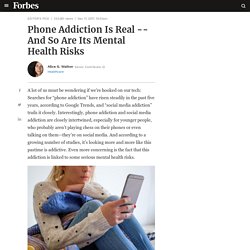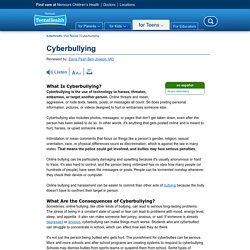

Time. You hear about FOMO a lot these days.

In fact, the word was added to the Oxford English Dictionary in 2013. What does it really mean? A recent study on the subject defined it as: Happiness Guide …‘‘the uneasy and sometimes all-consuming feeling that you’re missing out – that your peers are doing, in the know about, or in possession of more or something better than you’’. It’s certainly not a good thing.
Sometimes that alleviates the anxiety — but often it doesn’t. Is this just a symptom of modern life? Research has answers. FOMO Comes From Unhappiness Caught in the FOMO cycle? Our findings show those with low levels of satisfaction of the fundamental needs for competence, autonomy, and relatedness tend towards higher levels of fear of missing out as do those with lower levels of general mood and overall life satisfaction. So you’re not feeling so hot about things. In fact, FOMO leads people to check social media right after they wake up, before they go to bed and during meals: Attention. Why we experience fear of missing out. Tips to Get Over Your FOMO, or Fear of Missing Out. It happens on a daily basis.

I routinely scroll through my Facebook feed while sipping my morning tea. That's when I see photos and status updates about people doing things: going to fabulous charity events, attending basketball games from the company box, brunching at the newest hotspot, or sipping mojitos on an exotic beach, and all with perfectly filtered photographic evidence to show for it. Thanks to the wonders of 4G, these friends’ day-to-day lives have somehow become part of my own too.
It often stirs a jittery feeling inside me, and I sometimes find myself asking “Why am I not doing those things?” "Highlight Reel" I just received my 12-year anniversary notification from Facebook, and it has taken me about 10 of them to realize that what we witness on our screens is simply a “highlight reel” of our friends’ lives. In 2013 the word “FOMO” was officially added to the Oxford Dictionary. Face Your FOMO 1. 2. For gosh sakes turn off your phone! 3. And So Are Its Mental Health Risks. A lot of us must be wondering if we're hooked on our tech: Searches for “phone addiction” have risen steadily in the past five years, according to Google Trends, and “social media addiction” trails it closely.

Interestingly, phone addiction and social media addiction are closely intertwined, especially for younger people, who probably aren’t playing chess on their phones or even talking on them—they’re on social media. And according to a growing number of studies, it’s looking more and more like this pastime is addictive. Even more concerning is the fact that this addiction is linked to some serious mental health risks. Last month, MIT’s Sloan Management Review published a clever experiment—professors at two business schools in Italy and France made giving up one's smartphone for a day a requirement of the students in their courses. The relationship between addiction to smartphone usage and depression among adults: a cross sectional study.
Smartphone Addiction. Addiction Worried about your phone or Internet use? These tips can help you break free of the habit and better balance your life, online and off. What is smartphone addiction? While a smartphone, tablet, or computer can be a hugely productive tool, compulsive use of these devices can interfere with work, school, and relationships. When you spend more time on social media or playing games than you do interacting with real people, or you can’t stop yourself from repeatedly checking texts, emails, or apps—even when it has negative consequences in your life—it may be time to reassess your technology use.
Smartphone addiction, sometimes colloquially known as “nomophobia” (fear of being without a mobile phone), is often fueled by an Internet overuse problem or Internet addiction disorder. Smartphone addiction can encompass a variety of impulse-control problems, including: Virtual relationships. Information overload. Cybersex addiction. Causes and effects of smartphone and Internet addiction. Cyberbullying (for Teens) What Is Cyberbullying?

Cyberbullying is the use of technology to harass, threaten, embarrass, or target another person. Online threats and mean, aggressive, or rude texts, tweets, posts, or messages all count. So does posting personal information, pictures, or videos designed to hurt or embarrass someone else. Cyberbullying also includes photos, messages, or pages that don't get taken down, even after the person has been asked to do so. In other words, it's anything that gets posted online and is meant to hurt, harass, or upset someone else.
Intimidation or mean comments that focus on things like a person's gender, religion, sexual orientation, race, or physical differences count as discrimination, which is against the law in many states. Online bullying can be particularly damaging and upsetting because it's usually anonymous or hard to trace. What Are the Consequences of Cyberbullying?